For years, Xiaomi’s Mi Band line has been the top dog in the budget fitness tracker space. Huawei aims to change that notion with its new fitness tracker, the Huawei Band 6. The new Huawei fitness tracker is a capable little wearable, with a surprising amount of features not often seen in the sub-€50 market. Read our full Huawei Band 6 review to see if the wearable gives the Xiaomi Mi Band 6 a run for its money.
Related: Everything you need to know about buying from Huawei
What you need to know about the Huawei Band 6
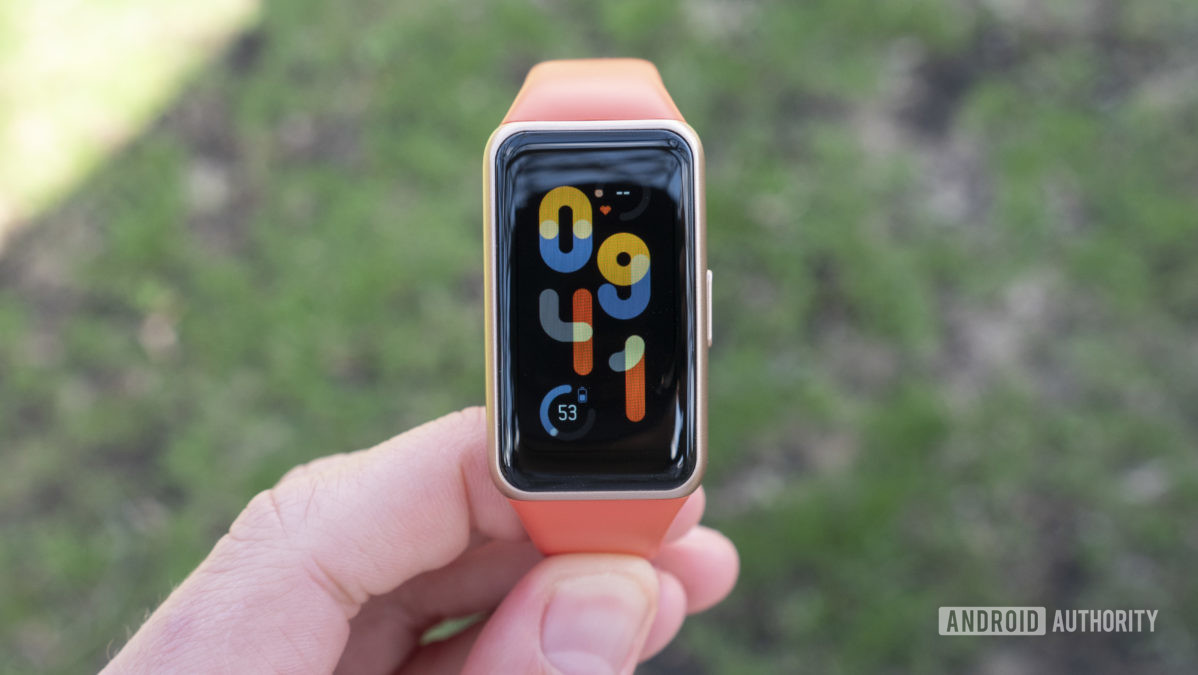
- Huawei Band 6: £59, €49 – €59 depending on the region
The Huawei Band 6 is Huawei’s entry-level fitness tracker and is meant to appeal to those who don’t need or want a full-fledged smartwatch. The form factor is very much a hybrid between the two, but its feature set skews towards the fitness side.
The Huawei Band 6 can track all the basics, including your step count, caloric burn, activity duration, heart rate, stress, all-day SpO2, and sleep. It supports 96 workout modes, and its battery can last up to two weeks on a charge. Smartwatch features are limited to the bare minimum: notification mirroring, on-device weather, smartphone music controls, and a camera shutter.
Huawei’s fitness tracker is nearly identical to the new Honor Band 6, save for a few omissions. The Honor Band 6 has fewer exercise modes and does not have all-day SpO2 tracking (only spot checks). While Huawei and Honor are technically separate companies at this point, it looks like the trackers were developed at the same time before the split. Check out our Honor Band 6 review for more details.
The Huawei Band 6 is available in the UK for £59. You can also find it in various other European countries, China, Mexico, and more. Take a look at Huawei’s global website for more availability information. Western buyers may need to import their Huawei Band 6 from international retailers once it becomes available.
What’s good?
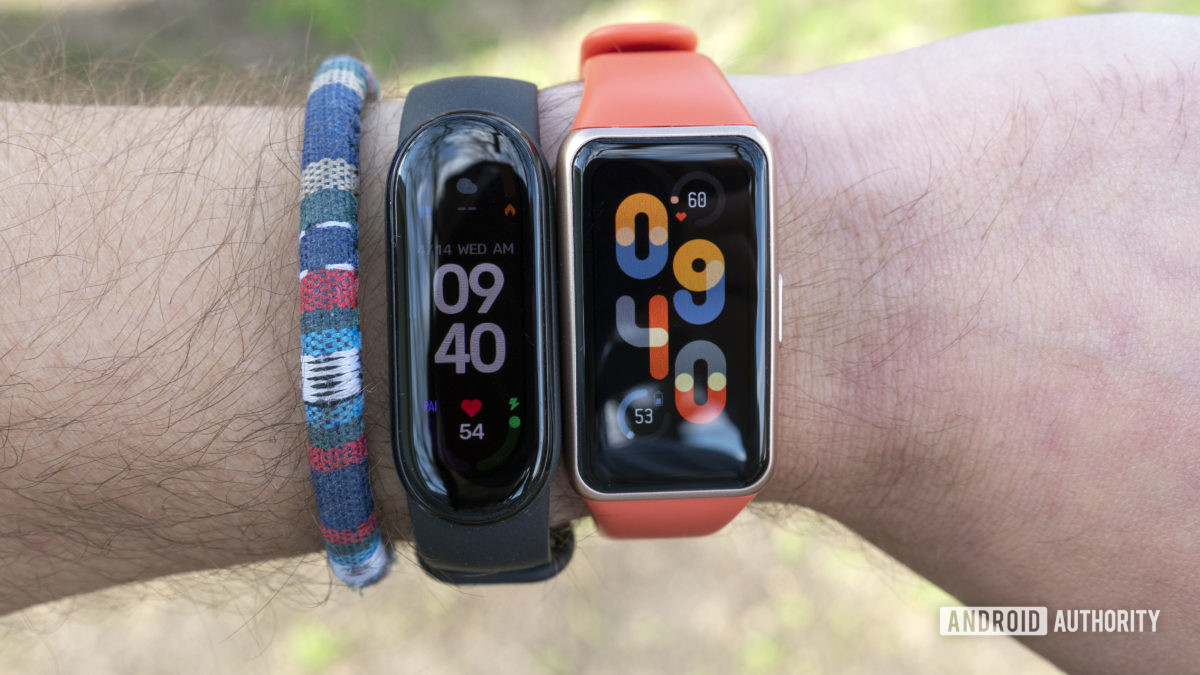
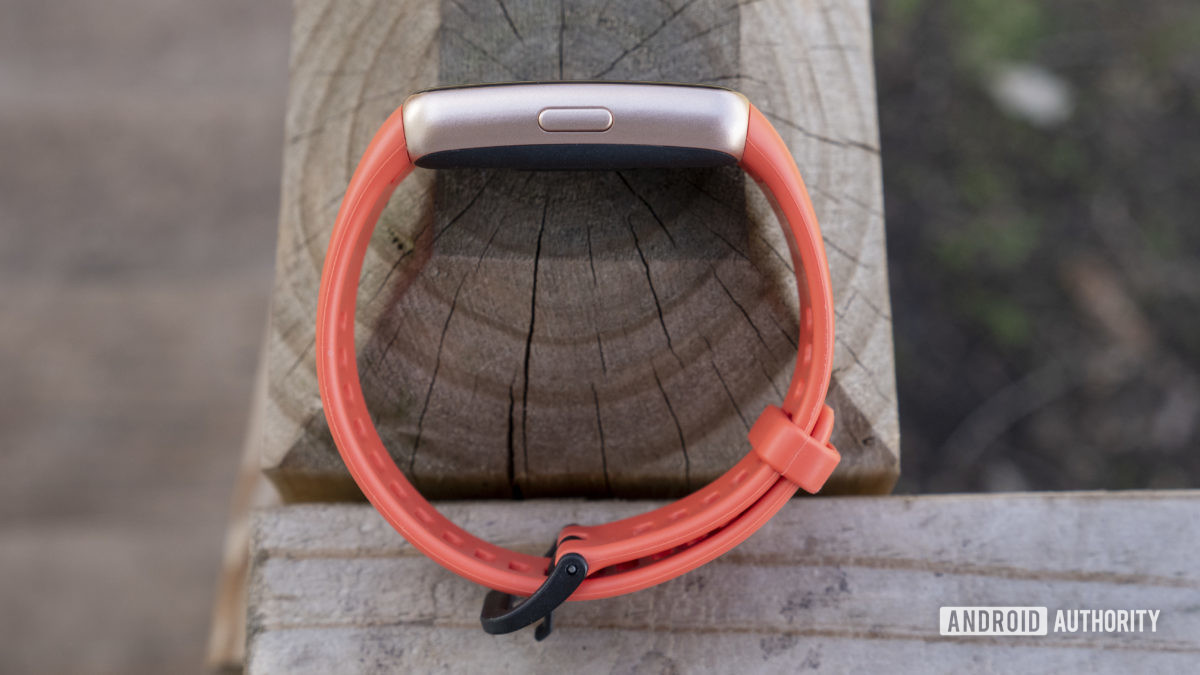
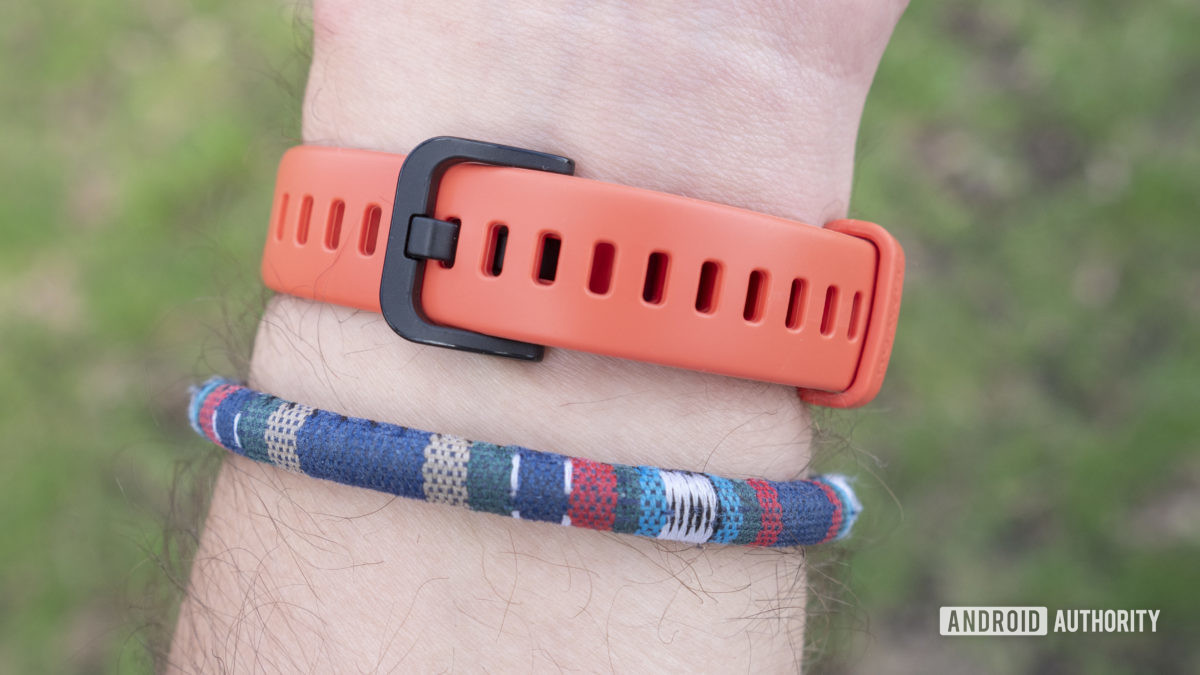
The Huawei Band 6’s display and hardware are great. The 1.47-inch AMOLED is crisp, bright, and beats the pants off the Fitbit Charge 4’s display. It’s incredibly roomy, and I don’t really miss having a bigger screen when I’m wearing it. I think Huawei struck gold here — the Huawei Band 6 is the perfect fitness tracker form factor. Since it’s so narrow, the tracker is comfortable to wear all day during workouts and at night for sleep tracking.
The Huawei Band 6 has the perfect form factor for a fitness tracker.
I like the Huawei Band 6’s on-device software. Touch responsiveness is smooth and snappy. The device rarely lags, likely because the operating system is so lightweight.
Battery life is good, too. It’s probably possible to get the full two-week battery life that Huawei advertises, but only with very minimal usage. Most people will probably get around 10 days on a charge. I’ve used the device regularly for all-day activity and sleep tracking, with ~four runs tracked per week, and I’m on track to get about 10 days.
As mentioned, the Huawei Band 6 can track 96 different workouts. That’s far more than most other devices in this price range. Of those 96, 85 are considered basic activities, while the other 11 are considered “professional.” Basic activities only record exercise time, heart rate, and calories burned. The 11 professional modes offer more tracking functions, and Huawei claims the tracking algorithm is “more powerful.” For example, tracking an outdoor run will give you additional data like stride length and frequency, pace, training pressure, recovery, and more.
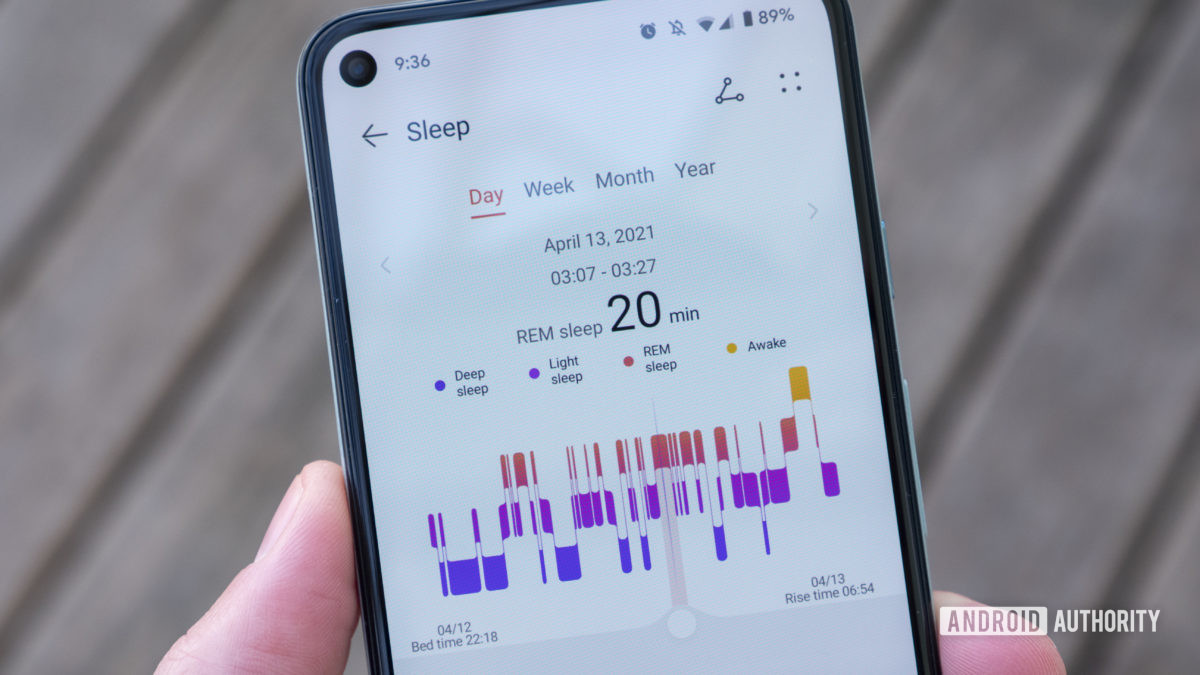
Sleep tracking is another bright spot for the Huawei Band 6. Using Huawei’s TruSleep 2.0 algorithm, the Band 6 can keep tabs on your sleep duration, stages (light, deep, REM), and your time awake. Accuracy has lined up well with my Fitbit Sense, Google Nest Hub (2nd Gen), and Garmin Forerunner 245 Music. I’ve also found Huawei’s sleep score to be reflective of how I’ve felt on most days.
Out of all the fitness apps I’ve used, Huawei Health is one of the frontrunners for sleep analysis. The sleep timeline is easy to read, sleep scores are explained in detail, and there’s a ton of information on how each metric breaks down. I’ve found most of Huawei Health’s sleep improvement suggestions to be helpful, too.
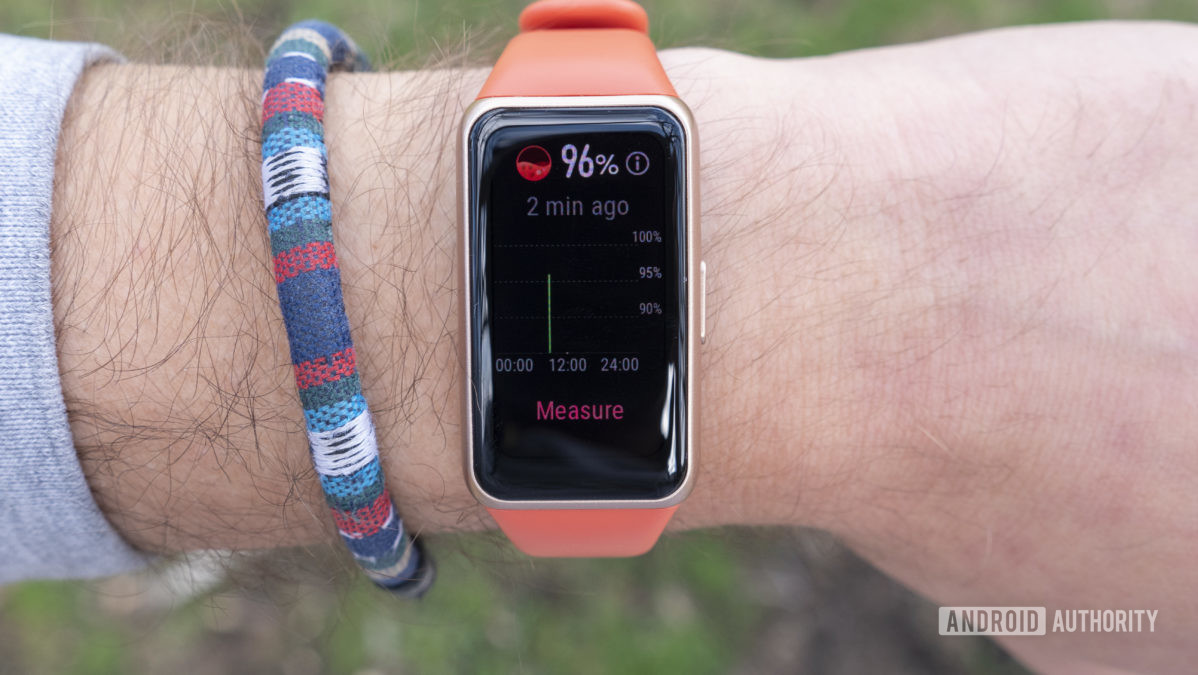
We don’t often see a device that can track blood oxygen levels all day. The Huawei Band 6 keeps tabs on your SpO2 levels every 30 minutes throughout the day. If you feel that’s too much of a hit on your battery, you can turn off all-day tracking and use it for manual spot checks.
The Huawei Band 6’s SpO2 readings lined up well with my (unannounced) Garmin wearable and my trusty fingertip pulse oximeter. I also like how Huawei Health displays SpO2 information. The graph is easy to read, and you can expand it to get a closer look at the numbers. If I had one gripe, Huawei runs into the same issue many others do regarding blood oxygen monitoring: why is it important to the user, and how are you helping them read the data? You can click on explainers of SpO2 monitoring from the data page on the tracker, but it doesn’t tell you what to do if your levels are low. To be fair, the Band 6’s disclaimer reads, “measurement results are for reference only and are not intended as a basis for a medical diagnosis.”
What’s not so good?
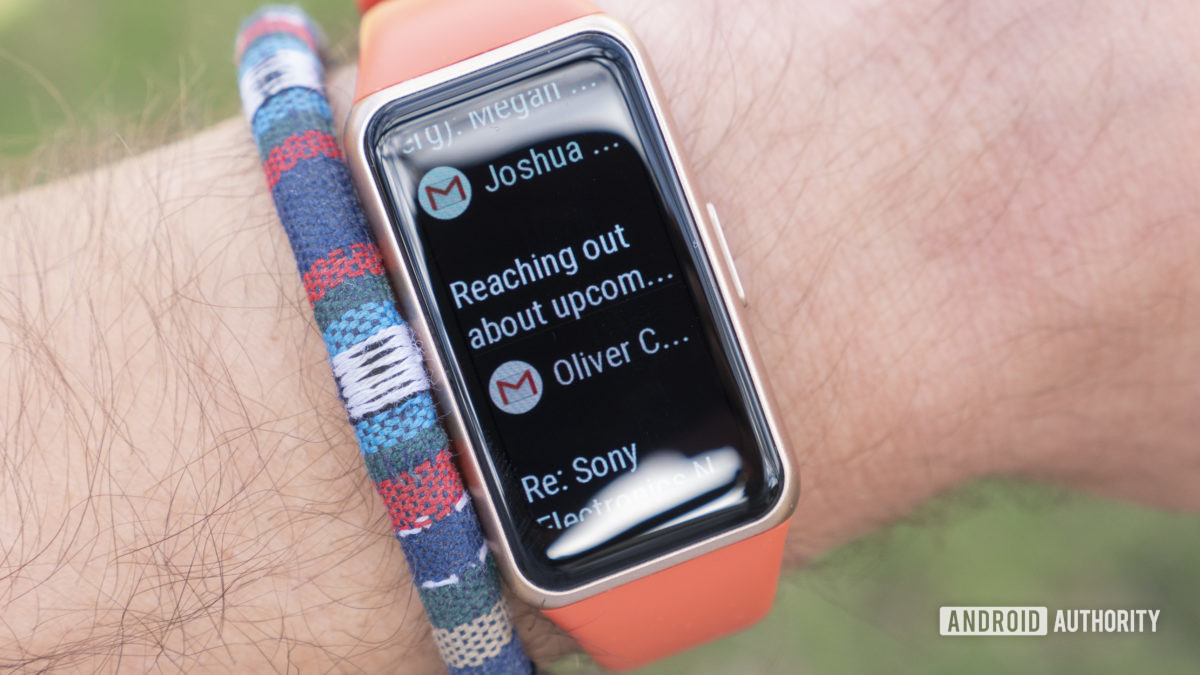
The good news is that the Huawei Band 6 is a good fitness tracker. The bad news is that it struggles with its software.
We’ve already touched on the fact that the Band 6 has limited smartwatch features, but even the features that are here aren’t very well implemented. Notifications from your smartphone come in reliably, but functionality is extremely basic. You cannot tap to expand any message notifications, so most of the time, you’ll pick up your smartphone to read a full text or even a short email. The Huawei Band 6’s screen is big enough to display messages in full, though, so perhaps the software needs to be implemented a little better.
Only a handful of watch faces are available for the Huawei Band 6. I struggled to find one that I liked. They’re definitely tailored towards younger, hipper users than I. But hey, I’m 29 — I’m not that old.
You can connect Huawei Health data to Google Fit if you prefer to see your health stats in Google’s app. That’s the only other app supported, though, so those who use Strava, MyFitnessPal, or other popular services will be disappointed.
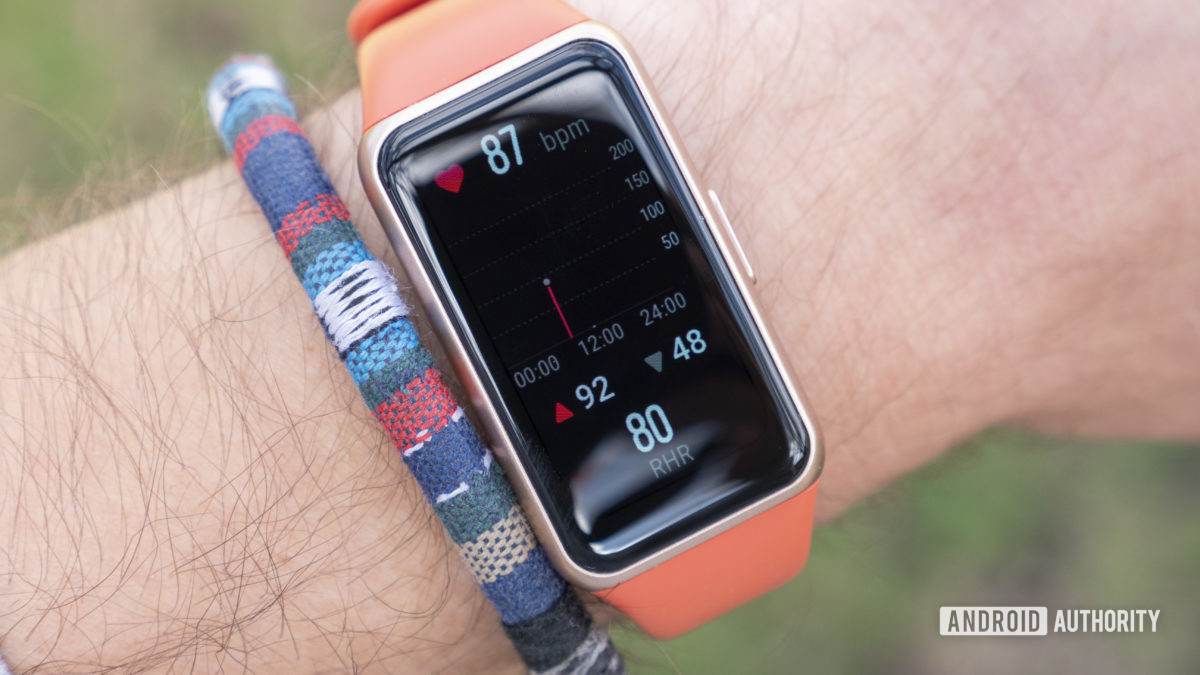
Not including removable straps on a fitness band is a big oversight. If your Huawei Band 6’s straps break for any reason, you’ll need to replace the entire tracker. It’s the one main downside to the device’s design.
The Band 6 uses Huawei’s TruSeen 4.0 heart rate sensor — the same as the Huawei Watch Fit. The sensor should be good enough to keep tabs on your resting heart rate throughout the day, but I recommend avoiding it for accurate readings during workouts.
Those in need of a serious fitness wearable should look elsewhere.
On multiple outdoor runs, tested against my Garmin Fenix 6 Pro and Wahoo Tickr X chest strap, the Huawei Band 6’s lowest heart rate readings were consistently 7-10bpm higher than the other two devices. Peak heart rate readings from the Band 6 were consistently 5-8bpm lower than the other two devices, too. Although, it’s worth noting the Huawei device was able to catch major heart rate trends throughout all of my exercises.
Menstrual cycle tracking is a welcome feature for the Huawei Band 6, though it’s a tad basic. It lets you log period cycles and symptoms, as well as remind you when your period is coming. It would be nice to see the feature more closely integrated with Huawei Health in the future.
![]()
The Huawei Band 6 tracks your stress throughout the day and displays that data in daily, weekly, monthly, and yearly graphs. Each day, you’ll see a breakdown of your stress levels at certain points in the day and an overall stress score. The stress score has most of the time been spot-on for me, but the manual stress test feature has not been reliable in my experience.
You’re supposed to hold still for one minute while the test takes place. I was able to get the manual readings working properly when I first set up the device, but no amount of pairing/unpairing or restarting the band has been able to see the feature working properly. I’m usually met with a “calibration failed” message.
Huawei’s TruRelax stress-tracking algorithm derives data from your heart rate variability (HRV). Notably, HRV is not offered as a standalone metric, so you’ll only see remnants of that data in your stress score.
Huawei Band 6 review: Should you buy it?
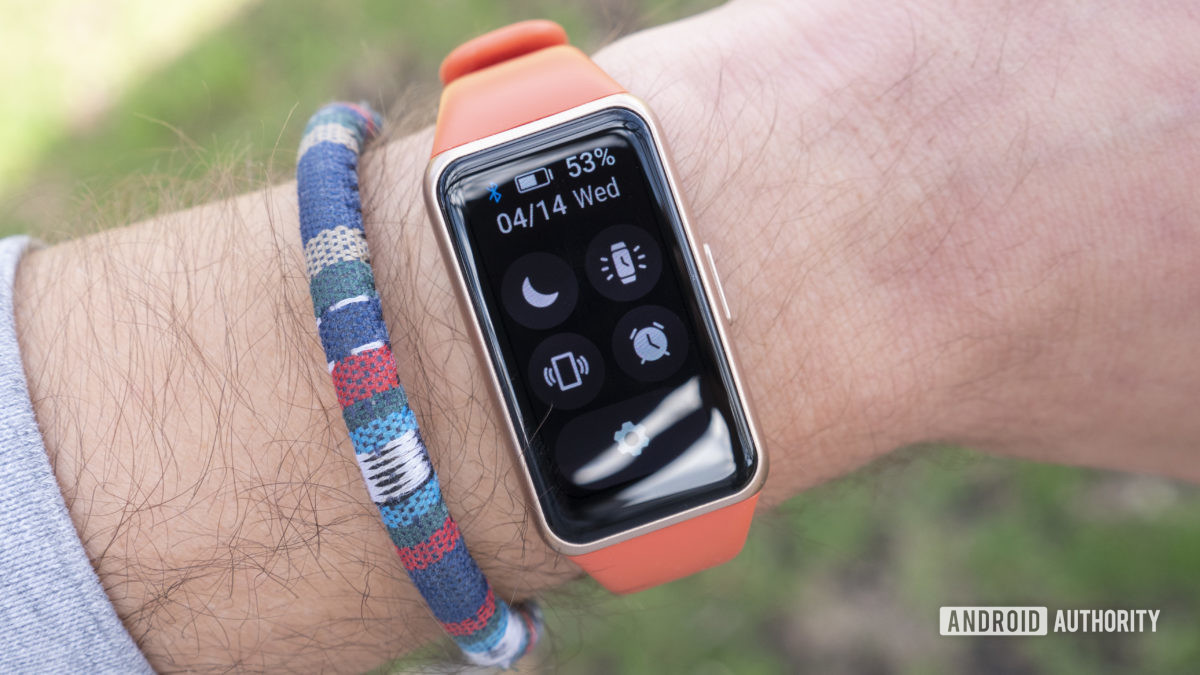
The Huawei Band 6 is a solid, inexpensive fitness tracker. I wouldn’t hesitate to recommend it to anyone looking for a wearable in this price segment. Coming from the much smaller Xiaomi Mi Band 6, the Huawei Band 6 offers a refreshing design and all-around solid fitness tracking. Plus, it’s just easier to use.
The Huawei Band 6 goes toe-to-toe with the Xiaomi Mi Band 6 and succeeds in most cases.
There are some software things for Huawei to work out, but none would be detrimental to the overall experience. If you’re after a Mi Band alternative or want a cheap fitness tracker that works well, the Huawei Band 6 should be near the top of your list.
No comments:
Post a Comment